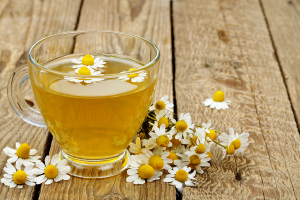In this modern world that we live in, we are faced with stress on a day to day basis. This stress can be mental, emotional, physical or environmental and whether we are aware of the stress placed on our body or not, it still takes a dramatic toll on our overall health and wellbeing. Our system is constantly trying to stay in a state of harmony and equilibrium as we deal with the daily stressors that appear through our day.
Sometimes a little stress can work to help us keep motivated and focused. It can offer us an adrenaline hit, which in the short term is beneficial to getting work don, but in the long term leaves the body depleted and exhausted. Chronic, long-term stress is a sure fire way to burn out, inevitably creating imbalances-mentally, emotionally and physically- that need rest and recuperation to heal.
The key is to finding ways to balance stress in day-to-day life and develop a tool kit- a series of techniques- that can work to bring your body back into balance and alleviate ongoing stress and deterioration.
Stress can be linked to a number of difference factors. In the physical body, stress can be from lack of sleep, physical exertion or illness or disease within the body that isn’t given time to heal. Stress within the physical body can also be worsened by diet and nutritional choices- rancid fats, refined sugars, processed foods, caffeine, alcohol, dairy, meat and excess salt all take their toll on the body’s stress levels.
On a mental or emotional level, stress can be influenced by relationship troubles, displeasure at work, the death of a friend or loved one, caring for someone sick or unwell, moving house, financial concerns and self worth and general contentment with life.
Outside of even your physical or emotional stress is environmental stressors- traffic and vehicle pollution, pesticides, cleaning products, internet connections, electricity currents, body care and perfumes- anything unnatural that creates dis-ease in the body and shakes the foundations of wellbeing and centeredness.
All of these stressors can evoke pathophysiologic responses – moving your body’s nervous system from the parasympathetic to the sympathetic state.
The parasympathetic nervous system is often referred to as the resting state. This is where the body exists in a calm and relaxed state and your body is able to spend its energy digesting food and absorbing the nutrients as it passes through the intestines and is eliminated from the body. In this state the heat beat is slow and steady and the mind is relatively quiet and clear.
The sympathetic nervous system is activated when your body is in an emergency or under stress- this is referred to as the ‘fight or flight’ response in the body. Rather than focusing on digestion or maintaining the body’s general homeostasis, the blood flow is diverted from your core to your periphery – to your muscles, and brain, so that you are better equipped to deal with the emergency or stressor at hand. This results in an increased heart rate, adrenaline is activated and mental alertness increases. The human body needs this flight or fight response for basic human survival and instinct, however if it remains in this state over a prolonged period of time it will reach the point of exhaustion.
There are several ways you can begin to notice when your body is in a state of stress and address the issue at hand rather than power on through. Eating well, getting enough sleep, taking time to enjoy things that you love, spending time with friends, exercising- all of these things can help you to keep stress levels in check.
One of the most obvious ways to reduce stress is a very obvious technique that is so often overlooked- breathing! When we are children we breathe big, full, deep breaths in our belly which combats stress naturally. Deep breathing can release stored toxins in the body, calm the mind, improve blood flow, improve digestion, relieve pain, release endorphins and switch the body back into a parasympathetic state.
Taking a few moments out of your day to sit and meditate can also work wonders on stress levels on a short and long term basis. Meditation works to clear the mind, lower blood pressure, increase mindfulness, center the breath and usher in a calming effect on the body and mind. Meditation needn’t be complicated- it can simply be a short period of time sitting quietly, focusing on the breath and letting unwanted emotions and thoughts pass through the mind without attaching to them.
Herbal Tea is also a wonderful and easy way to reduce stress in the body. Several herbal teas that help ease anxiety or stress include Lavender, Passionflower, Chamomile, Ginger, Fennel, St John’s Wort, Nettle, Lemon Balm and Peppermint. Avoiding coffee and caffeinated beverages makes a dramatic difference to stress levels and caffeine raises the adrenals and adds to feelings of stress, anxiety and fatigue in the long run.
Magnesium Salt baths and essential oils can be a lovely way to relax and unwind after a long day. Epsom salts help to sooth the muscles and create a relaxed state of mind while simultaneously offering the body a good healthy dose of magnesium. For additional benefit, adding essential oils to your bath or simply burning them in the room have a calming an rejuvenating effect on the body. The best oils to choose from include lavender, ylang ylang, aniseed, roman chamomile, fennel, thyme, juniper, nutmeg and rosemary.
As for diet, it is easy to focus on foods that work to ease stress in the body- foods that are detoxifying, alkalizing, nurturing and nourishing for the body. This focuses on a wholefoods diet that eliminates any foods that cause inflammation or an acidic state in the body. Some of the best options include fresh juice, organic greens, fresh fruit, salad and vegetables, avocados, nuts, seeds, root vegetables, coconut products, probiotic rich foods, lemon, herbal tea, olives, legumes, fiber rich foods, plant based proteins and plenty of water.
Take some time to note your levels of stress over the course of a week or so and monitor how you could benefit by adding some of these simple tips and techniques into your daily life.
Tomorrow I’m going to talk about what to do if you think stress has taken such a toll on your health that you are left with overwhelm and fatigue. There are simple ways of diagnosing adrenal fatigue using saliva hormone testing, and there are several ways to support the body naturoapthically if stress is significantly impacting your quality of life. If you’re not at that point though, using the simple tips above will go a long way to helping manage the day-to-day stress of life!
Leisa
![]()



8 commentsAdd comment
Leisa – great post. According to the American Institute of Stress about 75% of all doctor visits are stress-related. And yet, doctors don’t have enough time in their 15-minute slots to dig into our lives – they have a few hurried minutes to ask you about the problem and how it manifests. The answer from conventional medicine isn’t to deal with the stress but to prescribe medication… it’s no wonder we’re so way over-medicated. And let’s not forget that taking medication necessarily may take away the symptoms temporarily – but it’s seldom dealing with the cause, and very often it’s adding unnecessary toxins into your system – which you body reads as another stress to deal with.
thanks for these tips. i myself am against using drugs for reducing stress. Using these natural therapies are a lot more helpful in the long run.
nice info! In addition, if you want to get rid of stress or anxiety, you may consume a cup of chamomile tea per day.
This is an awesome post…great piece of information you provided in here. Stress in the root cause of main health problems, so should ward off.
“Tomorrow I’m going to talk about what to do if you think stress has taken such a toll on your health that you are left with overwhelm and fatigue.”
Still in the works? 🙂
Maybe it’s groundhog day and I don’t know it.
Thanks for great tips I am soooo stress today
I agree that stress may come in different form – mentally, physically, emotionally, even spiritually. And each person deals with them differently.
I’ve just been into alternative health recently and have already experienced great benefits from it. One treatment especially when it comes to fighting stress is the one I get from my Naturopathic doctor:
http://yorkvillewellnessclinic.com/iv-therapy-relax-release-renew/
Of course getting enough sleep, exercise and plenty of good food are vital as well!
Outside of even your physical or emotional stress is environmental stressors- traffic and vehicle pollution, pesticides, cleaning products, internet connections, electricity currents,